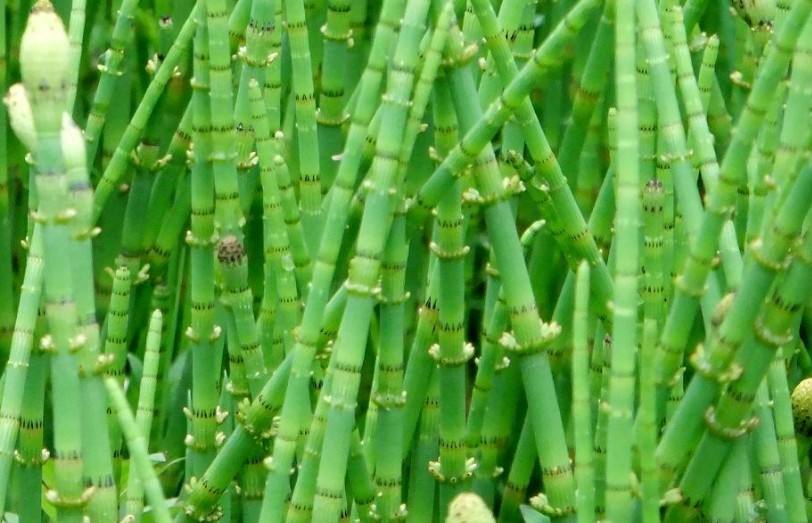PRODUCTS
Contact us
+86-731-86207286
Company:ChangSha Phyto Nutrition Inc.
Address:Xingsha HighTech & Development Zone Changsha China.(410100)
Email:sales@phyto-nutrition.com
Horsetail Extract
time:2017-03-05 author: phyto-nutrition

Horsetail Extract
· Latin Name: Equisetum arvense
· Active Ingredient: Silica
· CAS No.: 1343-98-2
· Test method: UV-VIS
· Specifications: 7%
Dinosaurs were still roaming the earth when this perennial flowerless plant (Equisetum arvense) first made its appearance. The numerous common names it has collected over the centuries--horsetail, bottle brush, corncob plant--refer to the distinctive brownish cones that emerge from its bamboolike stems. It is primarily these hollow, jointed stems that are used for medicinal purposes.
Healers in centuries past considered the plant valuable for controlling bleeding from lung lesions caused by tuberculosis. Interestingly, studies in animals indicate that it also helps to stanch bleeding when applied directly to a wound.
Today, the most notable use for horsetail is as a mild diuretic (''water pill'') to increase urination and lessen swelling, and as a remedy for various bladder and kidney problems (including kidney stones and bladder infections). Scientists have even identified the compounds in horsetail that promote fluid loss (equisetonin and flavone glycosides). Anti-inflammatory qualities have spurred its use for inflammatory gastrointestinal conditions such as Crohn's disease. Claims that horsetail can promote weight loss (beyond simple water loss) are unfounded, however.
As a rich and natural source of easy-to-absorb silica, horsetail is likely to be effective in strengthening nails, hair, and teeth; the body requires silica to keep such connective tissue (as well as joint cartilage) healthy and strong. In fact, it's the presence of silica that accounts for the herb's use to prevent osteoporosis ("brittle bones"), to treat bursitis and tendonitis, and to enrich "natural" formulas for baldness.
Liquid extracts, capsules (including freeze-dried whole herbs), tablets, and dried horsetail for loose and prepared tea are widely available. To prepare horsetail tea, steep 1 tablespoon of dried herb in 1 cup (8 ounces) of hot (not boiling) water; adding a little sugar reportedly releases more silica from the leaves. To use the liquid extract, add 1/2 teaspoon to a glass of water; drink three times a day. To use the freeze-dried whole herb capsule (it's quite potent in this form), take one capsule three times daily.
General Interaction
Because of its mild diuretic effect, avoid taking horsetail along with any of the more potent diuretic medications available by prescription. Doing this could cause excessive fluid loss and an electrolyte imbalance.
Because horsetail contains nicotine--albeit in very small amounts--it could cause problems in people taking nicotine replacement patches (or other formulations) for smoking cessation.
Cautions
Horsetail will promote urination, so be sure to drink plenty of water to replace the lost fluids.
Only take this herb in commonly recommended amounts; large doses could cause problems because of its nicotine content. Stop taking horsetail and call your doctor if you experience muscle weakness, a fast or irregular heartbeat, or other unexpected discomforts.
Never take horsetail to reduce the swelling associated with poor kidney or heart function; both are potentially serious conditions that require careful medical monitoring.
Ailments Dosage
Crohn's Disease As a tea: Pour 8 ounces hot water over 1 tbsp. of dried herb; drink up to 3 times a day.
Nail Problems 1 freeze-dried, whole-herb capsule (OR 1/2 tsp. liquid extract mixed in 1/2 cup water OR one cup brewed herbal tea) 3 times a day

